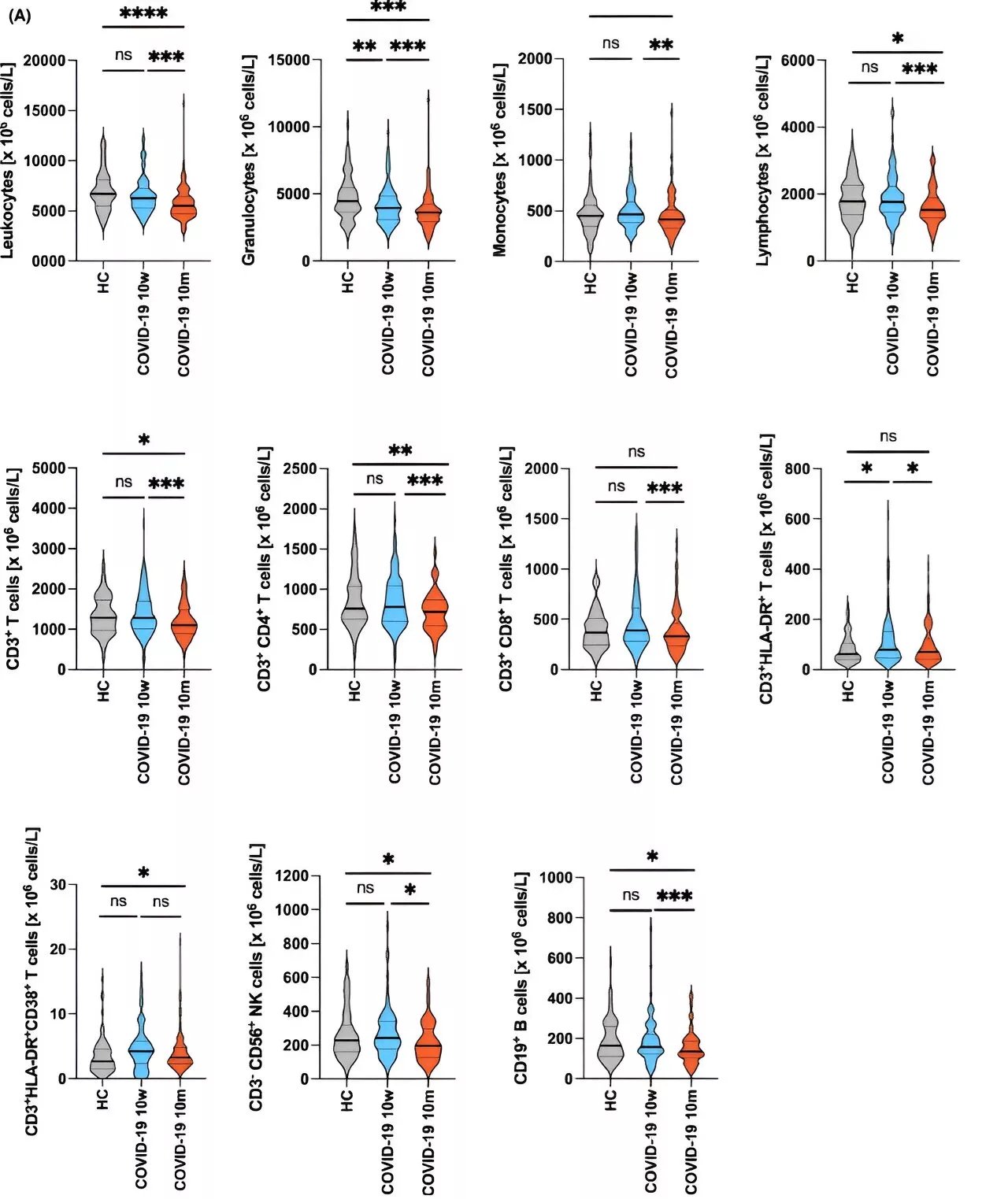A MedUni Vienna study has investigated gender-specific differences in the diagnosis of systolic heart failure in patients with type 2 diabetes.
Medical University of ViennaAug 5 2024 The results, recently published in the specialist journal "Cardiovascular Diabetology", show that the current methods are less reliable in women than in men. In view of the prevalence of the heart disease , particularly in women with type 2 diabetes , it is recommended that gender aspects be taken into account in existing guidelines to ensure the best possible care for patients.
As part of the study, the scientific team led by gender medicine specialist Alexandra Kautzky-Willer from the Division of Endocrinology and Metabolism , in collaboration with Martin Hülsmann and other colleagues from the Division of Cardiology , analysed data from 2083 patients with type 2 diabetes collected over a period of five years. Common methods and parameters for the diagnosis of systolic heart failure in T2D were analysed, with a particular focus on gender-specific differences.
T2D patients are up to four times more likely to have heart failure than people without T2D, with women more than twice as likely to be affected as men. Despite the pathophysiological differences between men and women, which lead to different predispositions and courses of the disease, there are currently no gender-specific recommendations for the diagnosis of heart failure in patients with T2D.
Early diagnosis is crucial for prognosis As the current study shows, this standardized approach does not meet the specific needs of female and male T2D patients: while higher NYHA grades are associated with higher NT-proBNP values, more frequent heart failure diagnoses and a higher risk of death in men, this correlation was not found in women. In contrast, the significance of NT-proBNP for heart failure was significantly higher in both sexes, but especially in women, than the clinical symptoms.
Our results suggest that reduced performance may not be suitable for screening heart failure in women with T2D." "NT-proBNP values, on the other hand, can be very sensitive and early markers of heart failure, especially in women. Diagnosing the heart disease as early as possible and adapting the treatment with new, very effective drugs is essential for the prognosis of patients with T2D," adds study leader Alexandra Kautzky-Willer.
Diagnostic Heart Heart Failure Type 2 Diabetes Endocrinology Heart Disease Medicine Metabolism
United Kingdom Latest News, United Kingdom Headlines
Similar News:You can also read news stories similar to this one that we have collected from other news sources.
 The Hoxton, Vienna is a hotel rooted in history and quirkinessSofia de la Cruz is the Travel Editor at Wallpaper*. She was born in Madrid, Spain but moved to London when she was 14 years old. Being exposed to the city’s creative pulse at such a young age shaped her into the inquisitive professional she is today.
The Hoxton, Vienna is a hotel rooted in history and quirkinessSofia de la Cruz is the Travel Editor at Wallpaper*. She was born in Madrid, Spain but moved to London when she was 14 years old. Being exposed to the city’s creative pulse at such a young age shaped her into the inquisitive professional she is today.
Read more »
 Spend the night at Vienna’s Imperial Riding School, a revitalised hotel with a horsey heritageAlia Akkam is a native New Yorker living in Budapest. She writes about interiors, hotels, travel, food, culture and drinks. She is also an Academy Chair for World’s 50 Best Bars.
Spend the night at Vienna’s Imperial Riding School, a revitalised hotel with a horsey heritageAlia Akkam is a native New Yorker living in Budapest. She writes about interiors, hotels, travel, food, culture and drinks. She is also an Academy Chair for World’s 50 Best Bars.
Read more »
 Everything you need to know about Vienna Blood's Matthew BeardMatthew Beard will reprise his role in BBC's Vienna Blood season four as Max Liebermann but fans are keen to know where they have seen the actor before
Everything you need to know about Vienna Blood's Matthew BeardMatthew Beard will reprise his role in BBC's Vienna Blood season four as Max Liebermann but fans are keen to know where they have seen the actor before
Read more »
 Inside Vienna Blood actor's romance with famous co-starJuergen Maurer has charmed many viewers with his performances as Oskar Rheinhardt on the British-Austrian drama. But many viewers may not know he is in relationship with a co-star
Inside Vienna Blood actor's romance with famous co-starJuergen Maurer has charmed many viewers with his performances as Oskar Rheinhardt on the British-Austrian drama. But many viewers may not know he is in relationship with a co-star
Read more »
 COVID-19 leads to long-term changes in the immune system, study showsIn a study recently published in the renowned journal 'Allergy', a MedUni Vienna research team shows that COVID-19 leads to considerable long-term changes in the immune system, even in mild cases.
COVID-19 leads to long-term changes in the immune system, study showsIn a study recently published in the renowned journal 'Allergy', a MedUni Vienna research team shows that COVID-19 leads to considerable long-term changes in the immune system, even in mild cases.
Read more »
 Even mild SARS-CoV-2 infections have a long-term impact on the immune system, finds studyIn a study recently published in Allergy, a MedUni Vienna research team shows that COVID-19 leads to considerable long-term changes in the immune system, even in mild cases. The findings could help to better understand the long-term consequences of an infection with SARS-CoV-2.
Even mild SARS-CoV-2 infections have a long-term impact on the immune system, finds studyIn a study recently published in Allergy, a MedUni Vienna research team shows that COVID-19 leads to considerable long-term changes in the immune system, even in mild cases. The findings could help to better understand the long-term consequences of an infection with SARS-CoV-2.
Read more »
